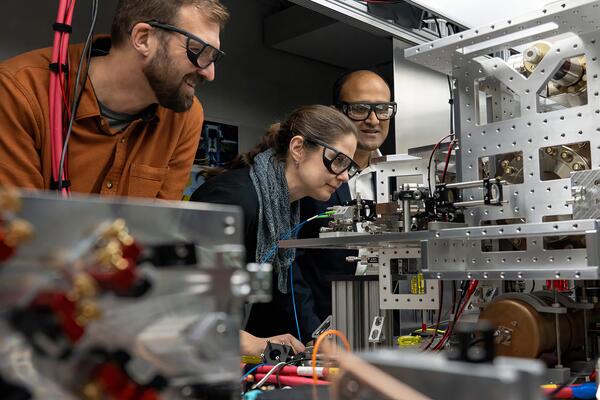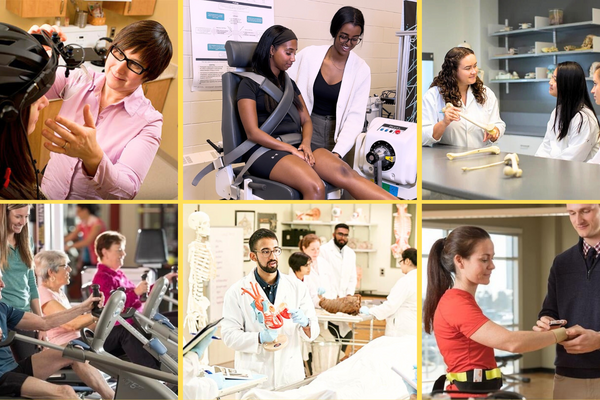
Meet Jackson, our youngest Challenge Champion ever
Jackson, an aspiring astrophysicist at the age of 7, joins Dr. Brian McNamara from the Waterloo Centre for Astrophysics in a discussion about black holes, planets and moon shops.

Jackson, an aspiring astrophysicist at the age of 7, joins Dr. Brian McNamara from the Waterloo Centre for Astrophysics in a discussion about black holes, planets and moon shops.
By Office of AdvancementEven at the young age of seven, Jackson is well aware there are plenty of unknowns when it comes to the universe. He’s eager to discuss supernovas, what makes up the universe and gets visibly excited over the prospect of what — or whom — might exist behind a black hole.
I love outer space and the universe, the stars and planets like Jupiter. I think scientists have the best job because they ask questions and then tell us what they found. And then I think maybe I can do that when I’m bigger. That would be pretty cool.
To help the Waterloo Centre for Astrophysics educate other kids like him through public outreach, Jackson donated a portion of his astronaut piggy bank: $11.57.
Jackson and Dr. Brian McNamara are Challenge Champions for Science Challenge #1. When $8,000 in gifts have been made to the Waterloo Centre for Astrophysics Fund, an extra $1,011.57 will be unlocked.

Read more
Waterloo Pharmacy alum spearheads outpatient oncology clinic for patients undergoing cancer treatment at WRHN

Read more
And a new model for how quantum research is shared — opening doors for the next generation of scientists and entrepreneurs

Read more
From optometry and pharmacy to public health and therapeutics, Waterloo alumni are powering Canada’s health care sector
The University of Waterloo acknowledges that much of our work takes place on the traditional territory of the Neutral, Anishinaabeg, and Haudenosaunee peoples. Our main campus is situated on the Haldimand Tract, the land granted to the Six Nations that includes six miles on each side of the Grand River. Our active work toward reconciliation takes place across our campuses through research, learning, teaching, and community building, and is co-ordinated within the Office of Indigenous Relations.